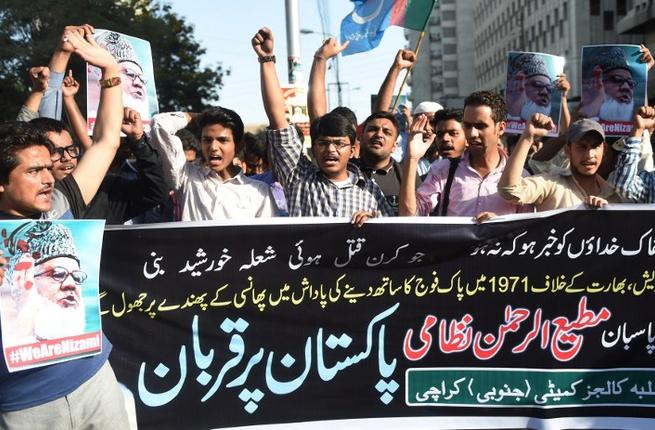-
Tips for becoming a good boxer - November 6, 2020
-
7 expert tips for making your hens night a memorable one - November 6, 2020
-
5 reasons to host your Christmas party on a cruise boat - November 6, 2020
-
What to do when you’re charged with a crime - November 6, 2020
-
Should you get one or multiple dogs? Here’s all you need to know - November 3, 2020
-
A Guide: How to Build Your Very Own Magic Mirror - February 14, 2019
-
Our Top Inspirational Baseball Stars - November 24, 2018
-
Five Tech Tools That Will Help You Turn Your Blog into a Business - November 24, 2018
-
How to Indulge on Vacation without Expanding Your Waist - November 9, 2018
-
5 Strategies for Businesses to Appeal to Today’s Increasingly Mobile-Crazed Customers - November 9, 2018
Bangladesh Executes Motiur Rahman Nizami for War Crimes
The Muslim Youth Movement of Malaysia (Abim) strongly condemns the death sentenced imposed on Motiur Rahman Nizami, the Amir of Jamaat-E-Islami Bangladesh, for so-called “crimes against humanity during the country’s bloody 1971 independence struggle from Pakistan”.
Advertisement
Tensions between the two countries flared after Pakistan expressed “deep concern” over Bangladesh’s Supreme Court verdict handing down the death penalty to Nizami for atrocities committed during the 1971 Liberation War, prompting Dhaka to ask Islamabad on May 8 to refrain from interfering in its internal affairs.
Nizami, a 73-year-old former government minister, was the 5th and the most senior opposition figure executed since the secular government set up a controversial war crimes tribunal in 2010. A crowd of activists celebrated outside the jail.
The execution came a few hours after Nizami’s family had visited him for the last time.
The U.S. State Department said that while it supported justice being carried out for the 1971 atrocities, it was vital that the trials of those accused are free, fair and transparent and conducted in accordance with global agreements.
Bangladeshi activists shout slogans after the execution of Bangladesh Jamaat-e-Islami party’s Ameer (president) Motiur Rahman Nizami at the Dhaka Central Jail in Dhaka, Bangladesh, May 11, 2016. But such protests usually get no major response from people.
Jamaat, the largest Islamist party in Bangladesh, described Nizami’s execution as a “planned murder”. Home Minister Asaduzzaman Khan said Nizami had preferred not to seek presidential clemency as his last effort to avoid the noose “because he understood the crimes he had committed were unpardonable”.
Mubashar Hasan, an assistant professor at Bangladesh’s University of Liberal Arts, said Tuesday’s execution sounded the death knell for the already embattled Jamaat. Among its crimes it was responsible for the killing of around 100 Bangladeshi intellectuals including writers, doctors, teachers and journalists.
The Bangladesh government alleges that about 3 million people were killed during the 1971 war in which some factions, including the Jamaat-e-Islami, opposed the break from Pakistan. He was also the cabinet minister of the country from 2001-2006.
Advertisement
Rights groups say the trials fall short of global standards and lack worldwide oversight, while the government says they are needed to heal the wounds of the conflict. The human rights groups also raised questions about the standard of the trial process, but Hasina and her colleagues have rejected claims that the judicial procedures were flawed.





























